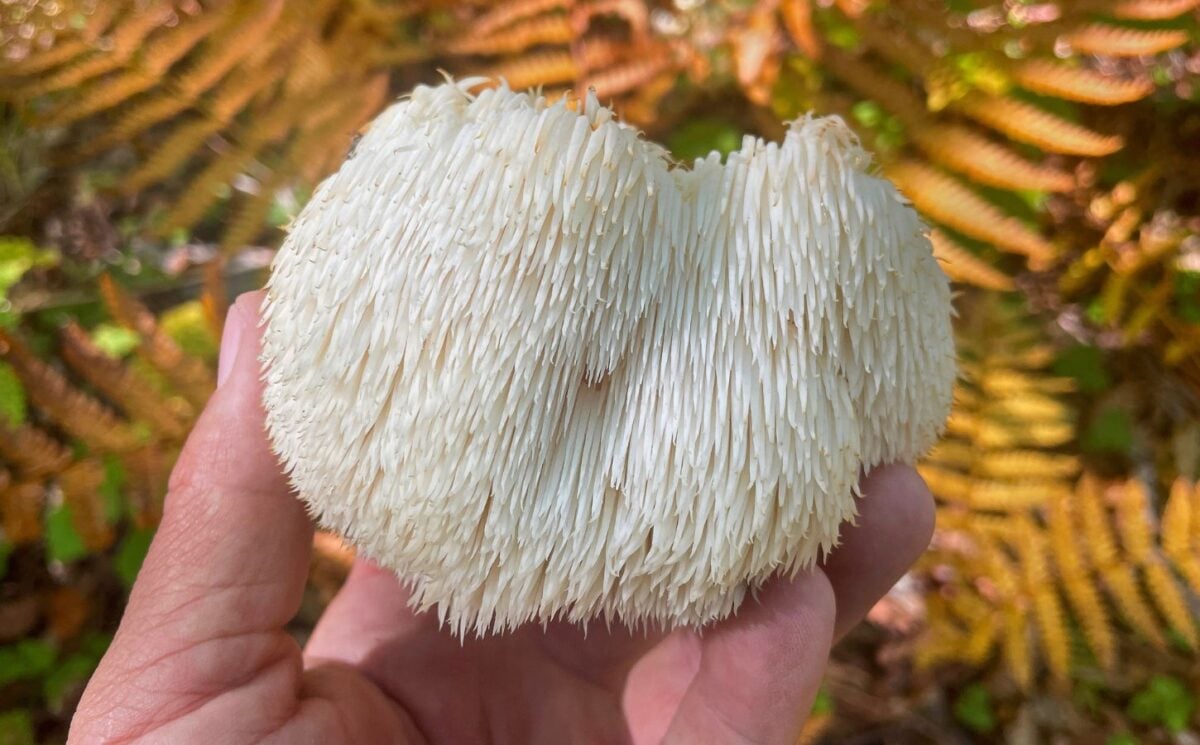Lion’s mane mushrooms are large, sweet, and tender, making them an ideal addition to any plant-based recipe that requires a star ingredient. Lion’s mane has several potential health benefits, and as demand for nutritious plant foods grows, it has become easier to find in stores and online. Here’s everything you need to know about lion’s mane mushrooms.
What is lion’s mane?Lion’s mane mushroom, also known as “bearded hedgehog,” is an edible fungus colloquially named after its fine tendrils and mane-like appearance. It’s native to North America, Europe, and Asia, and feeds mostly on dead wood, but can sometimes be found growing on live trees.Lion’s mane is also called Hou Tou Gu in China, where it has been used for tonics, teas, and other Traditional Chinese Medicine (TCM) for centuries.

In Japan, Korea, and India, it can be found in ordinary mushroom-based dishes as well as in traditional medicines.Lion’s mane is relatively simple to grow at home in small batches, but when produced commercially, it requires extensive quality control and careful harvesting by hand. Like other mushrooms, lion’s mane requires low light without direct sunshine to thrive and multiply.
Commercial production can be very resource efficient, particularly when growers incorporate hardwood sawdust – a lumber industry byproduct – and use agricultural waste for enrichment. The growing process requires little water and energy, and is compatible with vertical farming.In a report, Fact.
MR noted that mushroom production is “highly relevant” as the global food system adjusts to environmental changes and the increasing human population. While the reach of lion’s mane is currently “not very extensive,” the market will likely grow over the next decade in light of its sustainability, nutrient density, and purported health benefits.What are the benefits of lion’s mane?Adobe Stock You can season and grill lion’s mane mushrooms like steakLion’s mane mushroom has a tender and spongy texture, which makes it a versatile and allergen-friendly replacement for crab, lobster, and shellfish.
It can also be used as a plant-based steak, or burger patty, and can be grilled, fried, and BBQ’d like any other mushroom.The substantial texture and nutrient density make lion’s mane an ideal meat alternative, and lion’s mane “steaks” were popularized on social media by plant-based chef and Wicked Kitchen founder Derek Sarno in 2023, who released a how-to video on YouTube.According to Australian company Sassy Organics, 100g of dried lion’s mane includes approximately 22g of protein.
Lion’s mane contains iron, potassium, and amino acids, and WebMD notes that it is rich in thiamine, riboflavin, niacin, manganese, and zinc.In addition to its raw, dried, and cooked forms, lion’s mane can also be processed into powders, liquids, and capsules to create a nutrient-dense dietary supplement. In all of its forms, studies have linked lion’s mane consumption with possible health benefits.
Lion’s mane, health benefits, and the need for further researchResearch into lion’s mane is still in the very early stages, and no health benefits have been confirmed. That said, there are some studies that point to possible benefits of lion’s mane consumption. Medical News Today reports that lion’s mane mushroom may help with inflammation and oxidation, which contribute to diabetes, heart disease, and autoimmune diseases.
In particular, lion’s mane has become associated with improved cognitive function in the form of brain cell protection and generation. It may also aid memory and promote focus.Lion’s mane may support immune function and help to mitigate stress, anxiety, and depression.
It may aid diabetes management, support optimal digestive health, and facilitate wound healing. It may speed up nervous system recovery and even fight cancer.Writing for the BBC’s Science Focus, Dr Emma Beckett – a Food & Nutrition Scientist, science communicator, and registered dietitian – noted that most existing studies on the benefits of lion’s mane focus on concentrated supplements rather than the plant itself.
Because these products vary in strength, and because much of the existing research is made up of animal studies rather than human trials, the body of existing lion’s mane research is promising, but not conclusive.Lion’s mane is generally well-tolerated, but side effects are still possible. It’s always wise to consult your healthcare provider before taking supplements.
So-called natural or “alternative” medicines should never be taken in place of evidence-based treatments.Read more: Healthy Plant-Based Diets Lower Risk Of Death From Cardiometabolic Disorders, Finds StudyWhere to buy lion’s mane in the UKHappiee Sainsbury’s now stocks several varieties of lion’s mane mushroomsFor UK shoppers, whole lion’s mane mushrooms produced by Kent’s Urban Farm-It are now available at large Sainsbury’s supermarkets nationwide. The 200g punnets of lion’s mane mushrooms have an RRP of £5, and the packaging itself is fully recyclable.
Earlier this month, Happiee launched the UK’s first ready-to-cook lion’s mane mushroom product, available in Original and Teriyaki flavors. The pre-marinated mushroom pieces offer a consistent flavor and texture, making them an ideal addition for quick meals like stir-fries. They cost £4 per 180g pack and are available at 240 Sainsbury’s stores nationwide.
Riverford Organic Farmers stocks lion’s mane, and the company sources its mushrooms from Dart Valley Fungi in Devon. Purchased through Riverford, a 200g punnet of lion’s mane costs £8.25 per pack.
Riverford is one of the largest delivery box schemes in the UK.Several other producers sell their mushrooms directly to customers, including Mushroom Culture in Wiltshire, which stocks mushrooms, mushroom grow kits, and concentrated supplements such as lion’s mane extract powder and capsules, in its online shop.Lion’s mane supplements are widely available online, though as noted by Beckett, they can vary significantly in nutrient density, size, and quality.
Larger companies such as Holland & Barrett and Nutravita sell products online, as do many smaller and independent traders.Where to buy lion’s mane in the USFor US shoppers, lion’s mane mushroom products are often available from major retailers like Whole Foods Market and Sprouts Farmers Market, in addition to smaller international supermarkets, farmers’ markets, whole foods stores, and independent producers.Several online retailers like iHerb and Vitacost offer lion’s mane powders, capsules, and liquids, as does Amazon.
When buying online, in particular, it’s important to check dosages and expiry dates, and to avoid purchasing from completely unknown companies and sellers.Smaller platforms like Box Nutra and Urbll also stock lion’s mane products, with Urbll items available to buy through Etsy. (Box Nutra is currently rated as “great” with four stars on TrustPilot, while Urbll is rated 4.
9 on Etsy with nearly 81 thousand sales so far.)For US-based folks looking for grow kits, companies such as North Spore, Far West Fungi, Cascadia Mushrooms, and Fat Moon Mushrooms all offer complete DIY packages. The latter can grow three pounds of organic lion’s mane mushrooms in just two weeks.
Read more: Using Mushrooms As Meat: The Ultimate GuideThis article was written by Liam Pritchett on the PBN Website..
Health

What Are The Benefits Of Lion’s Mane Mushrooms And Where Can You Buy Them?

Lion's mane mushrooms are nutritious and versatile, which makes them a popular plant-based ingredient and dietary supplementThis article was written by Liam Pritchett on the PBN Website.















